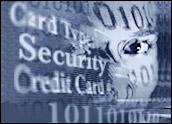
Tiny computer chips with myriad applications — from scanning concert tickets to tracking the family dog to monitoring travelers as they cross international borders — are shrinking, and have now have caught up with the imaginations of science fiction and spy novel writers.
Japanese electronics maker Hitachi unveiled this week the world’s smallest radio frequency identification, or RFID, chips. They are just 0.002 inches by 0.002 inches and look like flakes of powder.
They are thin enough to be embedded in a sheet of paper, according to Hitachi.
Tags Getting Smaller
The latest chip is 60 times smaller than Hitachi’s previous Mu-chip, and can handle the same amount of information, which gets stored as a 38-digit number, according to Hitachi.
Although the tags are now the smallest made, they need an external antenna to work, and the smallest antenna developed so far is about 80 times bigger than the tags.
“It is another sign of innovation in the market,” Michael Liard, research director of RFID at ABI Research, told CRM Buyer. “However, we are still several years away from having any practical business solutions realized.”
Barcode vs. RFID
While earlier versions of identification-and-tracking technology, such as the barcode, are also capable of storing data, they are limited in range, requiring that items be scanned close up by optical readers.
However, an RFID tag’s data can be accessed from a distance — as much as several hundred yards away — by devices that pick up radio signals.
Business Applications
RFID has incredible potential to impact a wide array of businesses, Liard said, with the promise of applications that would lead to massive cost savings, efficiency gains, and unprecedented visibility into the supply chain.
The smaller RFID tags get, the more cost-efficient the technology will become, ultimately allowing companies to track individual items, he pointed out.
“That is really the holy grail of tracking in terms of retail supply chain management,” commented Liard. Making RFID tags small enough to be embedded in a piece of paper is significant, he said, because ultimately they will become part of item labels.
Big Brother
The possibility that corporations and governments may have the capability to track people and products with tiny RFID devices has sparked worry that the technology could be abused, raising the specter of Big Brother spying on ordinary citizens.
Americans holding U.S. passports issued after October 2006 already carry embedded radio frequency identification chips inside those documents, according to the State Department.
While the technology could enable governments to conduct routine surveillance of their citizens, Liard noted that “there are physical limitations to RFID” that will likely come into play.




































